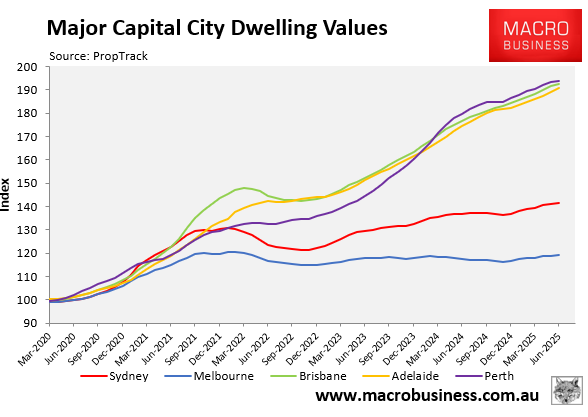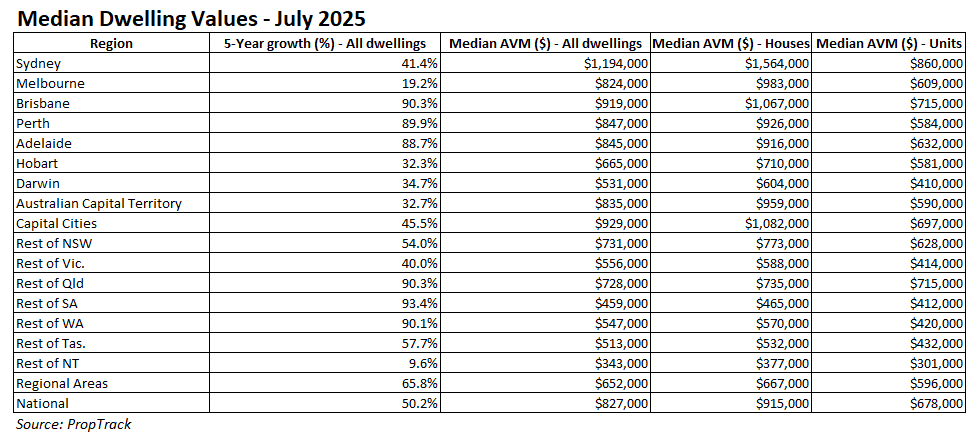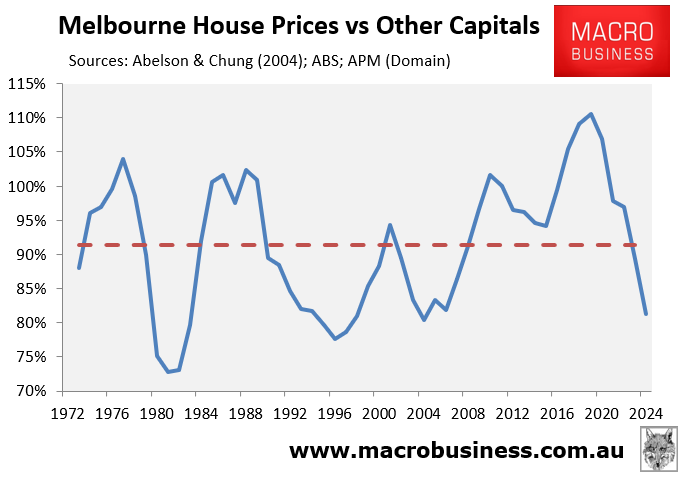Melbourne’s housing market has experienced a long period of price stagnation compared with the other major capital cities.

According to PropTrack, Melbourne’s median dwelling values rose by only 19.2% in the five years to July, compared with an average increase across the combined capital cities of 45.5%.

Melbourne’s median dwelling value in July 2025 was $824,000, 11.3% below the combined capital city median value of $929,000 and the cheapest of the five major capital city markets.
Melbourne’s relative affordability is also illustrated by the following time series chart plotting the city’s median house price as a ratio of the other capital cities.

As you can see, Melbourne housing’s relative affordability is approaching its highest point in approximately 20 years.
Not surprisingly, then, KPMG projects Melbourne to be the best-performing housing market in 2026, amid growing interest from ‘bargain hunters’.
KPMG expects Melbourne house prices to rise by 6.6% next year, easily beating the national average rise of 4.5%.
“We expect strong gains next year, particularly in the unit market, where affordability is much more favourable”, said KPMG chief economist Brendan Rynne.
Buyer advocate Arin Russell added that high-income investors from Western Australia have begun shifting their sights to Melbourne, looking to cash in “before the recovery accelerates”.
“They’ve had their Perth growth and now they’re diversifying”, he said.
“We’re seeing people from Western Australia targeting Melbourne, some first-home buyers, some experienced investors, and they’re chasing value”.
Melbourne’s economy is weak and the state’s tax laws are highly unfavourable to investors.
Even so, the city’s relative affordability cannot be denied. Nor can Melbourne’s rapid population growth, which is projected by the state government to swell the population to 9 million by 2050.

